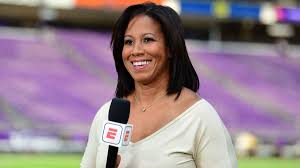Sports broadcasting and analysis services are in great demand. The growing popularity of numerous sports events, the proliferation of international sports leagues, the evolution of high-definition broadcasts, and the evolution of online sports gambling have increased the demand for these services. As well as being required to cater for the needs of viewers and teams, these professionals must also be adept at providing detailed reports on their findings, which is why many universities and colleges offer degrees in Sports Broadcast and Analysis. If you feel that you would benefit from such a degree, the first step is to find out which universities or colleges offer these courses.

There are several universities and colleges that offer sports broadcasting and analysis services, but you should make sure you choose one that has a strong reputation within the industry, and a track record of success. It’s important to go for a college or university that is affiliated with a sports league, because this means it will have direct access to resources that you won’t have if you pursue your degree elsewhere. Sports broadcasting and analysis courses can take several years to complete, depending on how much research you do into the topic. In terms of where to study for your degree, it’s best to choose a university with a liberal arts background, because the subjects are more likely to apply to a variety of different professions.

There are several options if you want to study for a sports broadcasting and analysis service degree. You could start by taking general education classes that would give you an overview of the various sports you might be interested in covering, and the techniques used to describe those sports. Some students take specialized classes, in which case you’ll need to decide whether you want to specialize in a certain area. One course you may consider is Sports Broadcasting and Analysis, which cover a number of different topics including how and why television stations broadcast sports. You’ll learn about the background and demographics, which you’ll use to create a better reporting style that will ensure the audience get accurate and informative reports. Other topics include sports reporting techniques, such as how to use graphics to enhance the information viewers receive from the broadcast.



